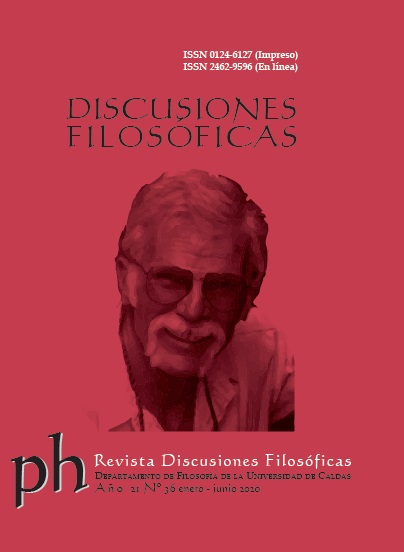Authors
Abstract
The question of the responsibility of the individual, the emphasis on therapeutic capacity of memory, and the reflection on personal and collective identity are
essential elements in Imre Kertész’s literature. His narrative presents a remarkable philosophical slant, a recurrent questioning of existence at the mercy of
the wild current of history. A holocaust survivor, for Kertész writing is a search for the self, a testimony that vindicates the victims of barbarism as well as the
expression of a moral imperative. In this paper we will show some of the ethical-philosophical implications of the Kerteszean narrative, an existential
adventure and an extraordinary testimony of the evolution of the past 20th century.
References
Améry, Jean. Jenseits von Schuld und Sühne; Unmeisterliche Wanderjahre; Örtlichkeiten (Werke, Bande 2). Stuttgart: Klett-Cotta, 2002. Impreso.
Arendt, Hannah. La tradición oculta. Barcelona: Paidós, 2004. Impreso.
Benjamin, Walter. Angelus novus. Barcelona: Edhasa, 1971. Impreso.
______. “Tesis de filosofía de la historia”. Discursos interrumpidos I. Madrid: Taurus, 1989: 177-191. Impreso.
Bultmann, Rudolf. Teología del Nuevo Testamento. Salamanca: Sígueme, 1981. Impreso.
Ebert, Dietmar. “Atonales Erzählen in der geschlossenen Gessellschaft”.
Ebert, Dietmar, ed. Das Glück des atonalen Erzählens. Dresde: Azur, 2010: 209-272. Impreso.
Földényi, Lázsló. Schicksallogiskeit. Ein Imre-Kertész-Wörtterbuch. Hamburgo: Rowolt, 2009. Impreso.
Kertész, Imre. “Ensayo de Hamburgo”. Un instante de silencio en el paredón. Barcelona: Herder, 1999: 29-52. Impreso.
______. “La vigencia de los campos”. Un instante de silencio en el paredón. Barcelona: Herder, 1999: 53-65. Impreso.
______. “Sombra larga y oscura”. Un instante de silencio en el paredón. Barcelona: Herder, 1999: 66-73. Impreso.
______. Sin destino. Barcelona: Acantilado, 2001. Impreso.
______. Kaddish por un hijo no nacido. Barcelona: Acantilado, 2001. Impreso.
______. Fiasco. Barcelona: Acantilado, 2003. Impreso.
______. Liquidación. Madrid: Alfaguara, 2004. Impreso.
______. Diario de la galera. Barcelona: Acantilado, 2004. Impreso.
______. Cartas a Eva Haldimann. Barcelona: Acantilado, 2012. Impreso.
______. La última posada. Barcelona: Acantilado, 2016. Impreso.
Levi, Primo. I sommersi e i salvati. Turín: Einaudi, 2003. Impreso.
Mann, Thomas. Relato de mi vida. Madrid: Alianza Editorial, 1990. Impreso.
______. El elegido. Barcelona: Galaxia Gutenberg, 1997. Impreso.
Summers-Bremner, Eluned. “Imre Kertész’s Kaddish for a Child not Born”. Vasvári, Louise; Tötösy, Steven, eds. Imre Kertész and Holocaust Literature (220-231). West Lafayette: Purdue University Press, 2005: 220-231. Impreso.
Varga, Zsuzsanna. “Tradition and Subversion in Imre Kertész’s Work”. Hungarian Studies. 18 (2), 2004: 223-234. Impreso.
Weber, Max. Economía y sociedad. México: FCE, 2014. Impreso.

 PDF (Español)
PDF (Español)
 FLIP
FLIP






























